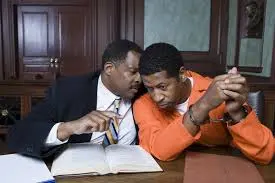1. Experience and Specialization
When facing criminal charges, it's vital to select an attorney who has experience in criminal defense, specifically in handling cases similar to yours. Criminal law is vast, covering everything from DUIs to drug offenses, white-collar crimes, and violent offenses. An attorney who has spent years navigating the complexities of criminal law will have a deep understanding of legal strategies, courtroom procedures, and the nuances of the judicial system.
For example, if you're charged with a drug offense, it’s ideal to find an attorney who has handled numerous drug-related cases and has a solid track record in securing favorable outcomes. Similarly, for white-collar crimes, hiring a lawyer with expertise in that particular area is key.
2. Local Expertise
Laws and regulations vary by state, and even from one county to another. It's essential to choose a criminal defense attorney who is familiar with the local court system where your case will be heard. Attorneys with local experience have established relationships with prosecutors and judges, understand the court's procedures, and may even have insights into how certain judges typically rule in specific types of cases.
For example, an attorney who frequently works in the same courthouse where your case will be tried may be able to use their knowledge of local customs to your advantage during negotiations or in court presentations.
3. Track Record and Reputation
Before choosing a criminal defense attorney, it's important to evaluate their track record. This includes not just the number of cases they’ve handled but also their success rate. A lawyer with a strong reputation and a history of achieving favorable outcomes for clients, such as dismissals, reduced charges, or lighter sentences, should give you confidence.
Take time to review client testimonials, online reviews, or ask the lawyer for case results that are similar to yours. Some attorneys may also offer client references. A reputable lawyer will be transparent about their case history and have no issue discussing their successes (or even their losses) and how they plan to approach your case.
4. Personal Attention and Communication
When dealing with criminal charges, open and clear communication with your attorney is vital. A good attorney should take the time to listen to your side of the story, understand your concerns, and explain the legal process clearly.
During the initial consultation, observe how the attorney communicates. Do they take the time to answer your questions thoroughly? Are they approachable and easy to talk to? Also, find out who will be working on your case. In some law firms, junior associates may handle much of the work, with the lead attorney only stepping in occasionally. It's essential to know whether you will have consistent access to the attorney you hire or if much of the work will be delegated to others.
5. Fee Structure and Transparency
Legal fees can vary significantly, and understanding the fee structure is an important part of choosing the right attorney. Criminal defense attorneys may charge flat fees, hourly rates, or work on a retainer basis. During your consultation, make sure you have a clear understanding of the total cost, including any additional expenses such as expert witnesses, investigations, or court filing fees.
Transparency is crucial here. Avoid any attorney who is vague about fees or hesitant to provide a detailed breakdown of costs. A good attorney will be upfront about their fees and will offer a written agreement so that both parties understand what to expect.
6. Comfort Level and Trust
Facing criminal charges is one of the most stressful experiences anyone can endure, and you need to feel comfortable and confident in your attorney's abilities. Trust your instincts during your consultation. If you feel uneasy or uncertain about an attorney's approach or demeanor, it's okay to keep looking.
An attorney-client relationship requires mutual trust. You need to trust that your attorney will fight diligently for your rights, and your attorney needs to trust that you will be open and honest about the details of your case. If you don’t feel comfortable with the lawyer during the initial meeting, it’s unlikely that trust will develop over time.
Conclusion
Choosing the right criminal defense attorney is a critical step in facing criminal charges. Focus on finding a lawyer with specialized experience, local expertise, a strong track record, and clear communication. Ensure the attorney offers a transparent fee structure and that you feel comfortable and confident in their ability to represent you. By taking the time to carefully select a qualified and experienced attorney, you can greatly increase your chances of achieving the best possible outcome in your case.

